An incident happened on the 19th June which set a dangerous backdrop to the capture of General Lucas. One has to remember that there was a confusion as to how the British should behave in Ireland and how republicans and protesters should be dealt with. There was a lack of clear direction from Westminster and different political groups were pushing for different tactics to be used. The ‘shoot to kill, with no questions asked’ along with the ‘burning of property’ was one such tactic that was being pushed into action in a manner that bordered on subversion and was aimed at escalating the conflict.
In June 1920 Colonel Gerald Bryce Ferguson Smyth was appointed RIC Divisional Commissioner for the province of Munster.
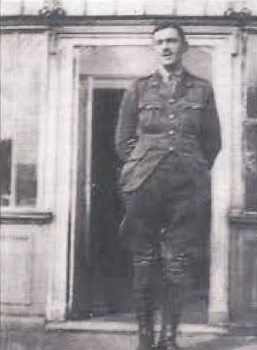
On 19 June 1920 Smyth called a meeting with the eighteen Listowel RIC constables. With him was General Tudor, soon to become leader of the Auxiliary Cadets, County Inspector O’Shee, Captain Chadwick, of the British Staff, Resident Magistrate Leatham, and Assistant County Inspector Dobbyn. Colonel Smyth made a speech in which he set out his interpretation of the rules of engagement that had been debated in parliament.
Rules of Engagement (ROE) are rules or directives to military forces (including individuals) that define the circumstances, conditions, degree, and manner in which force, or actions which might be construed as provocative, may be applied.[NATO MC 362/1] They provide authorization for and/or limits on, among other things, the use of force and the employment of certain specific capabilities. In some nations, ROE have the status of guidance to military forces, while in other nations, ROE are lawful commands. Rules of Engagement do not normally dictate how a result is to be achieved but will indicate what measures may be unacceptable.
Cole, Drew, McLaughlin, Mandsager, San Remo Rules of Engagement Handbook (San Remo: International Institute for Humanitarian Law, 2009)
The only report of what Smyth said comes from the constables that he addressed.
According to them he informed the gathered constables that:
“Police and military will patrol the country roads at least five nights a week. They are not to confine themselves to the main roads but make across the country, lie in ambush, take cover behind fences near roads, and when civilians are seen approaching shout: 'Hands up!' Should the order be not obeyed, shoot, and shoot with effect. If the persons approaching carry their hands in their pockets or are in any way suspicious looking, shoot them down.
You may make mistakes occasionally and innocent persons may be shot, but that cannot be helped and you are bound to get the right persons sometimes. The more you shoot the better I will like you; and I assure you that no policeman will get into trouble for shooting any man and I will guarantee that your names will not be given at the inquest.”
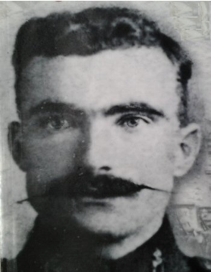
Smyth turned to the first constable and asked whether he was willing to co-operate. The constables anticipating trouble had already appointed a spokesman, Constable Jeremiah Mee.
'By your accent,’ he said, ‘I take it you are an Englishman; and in your ignorance you forget you are addressing Irishman.’
The officers were completely taken back by the defiant words and even more so by Mee's gesture of contempt: he took off his cap, belt and side arm, and laying them on a table said:
‘These too, are English. Take them!’ Source
Colonel Smyth and Inspector O'Shee immediately ordered that Constable Mee should be arrested, but realising that they had a mutiny on their hands retreated from the room. Later Commissioner Smyth tried a similar speech at Killarney RIC barracks. He told the gathered RIC constables that now they would be free from prosecution when they killed a man. No longer would there be an inquiry and no policemen would have to face public contempt by being hauled up before a Coroner’s jury. Also, when a police patrol saw a Sinn Féiner whom they suspected might be intending to attack them they were entitled to shoot first, knowing that there would be no questions asked.
To add dramatic effect, Smyth chalked a line on the floor. Those with him should stay on his side of the line those not willing to go along with this new regime should step over the line and be paid off. He was separating the sheep from the goats - the men from the boys. Five men immediately stepped over the line, and after a slight pause, the rest cheered them.
Smyth had been recently sent from England, and one must wonder whether his 'shoot first' policy was his own or something sanctioned higher up. When his blood -curdling speech and the reaction to it was reported back in Britain, questions were asked in Parliament.
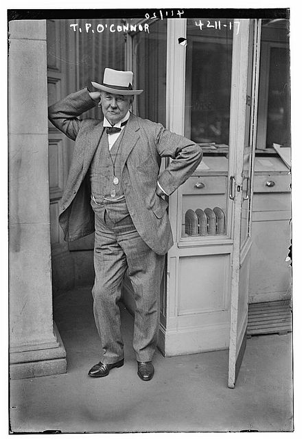
Thomas Power O'Connor (5 October 1848–18 November 1929), known as T.P. O'Connor and occasionally as Tay Pay, was a journalist, an Irish nationalist political figure, and a Member of Parliament (MP) for Liverpool which had a large Irish population. This was the only constituency outside the island of Ireland ever to return an Irish Nationalist Party MP, and O' Connor represented that constituency in the House of Commons from 1885 until his death in 1929. Remarkably, O'Connor continued to be re-elected in Liverpool under this label unopposed in the 1918, 1922, 1923, 1924 and 1929 general elections. On Wednesday 14 July 1920, Mr T.P. O’Connor asked a question in Parliament about the Listowel incident. Sir Hamar Greenwood, chief secretary for Ireland replied:
‘The recent events presumably refer to the resignation of five constables in Listowel, County Kerry. On 19 June last the District Commissioner, Colonel Smyth, made a speech to the members of the force, eighteen in number, stationed at Listowel. I have seen the report in the press, which, on the face of it, appears to have been supplied by the five constables already mentioned. I have myself seen Colonel Smyth, who repudiates the accuracy of the statements contained in that report. He informed me that the instructions given by him to the police in Listowel and throughout the division were those mentioned in a debate in this House on 22 June last by the attorney general for Ireland, and he did not exceed these instructions. The reason for the resignation of the five constables was their refusal to take up duty in barracks in certain disturbed parts of Kerry.
They had taken up this attitude before the visit of the divisional commissioner. I am satisfied that the newspaper report is a distortion and a wholly misleading account of what took place.’
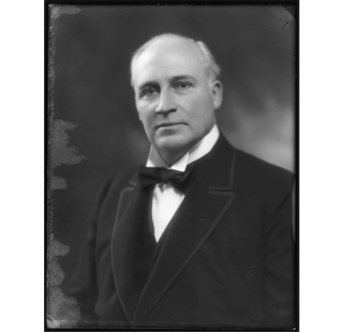
Mr O’Connor’s subsequent request for an adjournment to discuss the incident and Smyth’s remarks, which he saw as being an incitement for bloodshed, was refused. The Secretary of State had spoken and that was the end of the matter. Unfortunately that was not to be the case. Whether Smyth said all that he was accused of saying, whether it was his manner, or his inability to win round the disillusioned RIC constables, or whether this ‘shoot first’ policy was what was being advocated by those in power, one can never be absolutely sure about. The incident at Listowel led to the IRA taking on board the ‘shoot first’ policy as their own and Colonel Smyth suffered the consequences of his mishandling of the Listowel meeting.
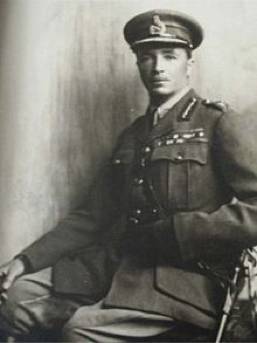
The presence at the meeting of General Tudor hints at who was really behind the orders. General Tudor was a close friend of Churchill and had been appointed by him as Chief of Police. At first it was generally thought that Tudor was doing a good job but as Keith Jeffery writes* 'the good impression did not last very long, as it became clear that Tudor (with Lloyd George’s backing) was happy to condone, or at least turn a blind eye to, police reprisals against presumed Sinn Feiners. Lord Riddell met Tudor over dinner with Lloyd George in June 1920. Following Tudor’s graphic description of the difficulties of police-work in Ireland, the Prime Minister ‘was very emphatic upon the necessity for strong measures. He said, “When caught flagrante delicto you must shoot the rebels down. That is the only way.” ‘**
*Field Marshal Sir Henry Wilson: A Political Soldier By Keith Jeffery p265
**6 June 1920 (McEwan, The Riddell Diaries, 314)
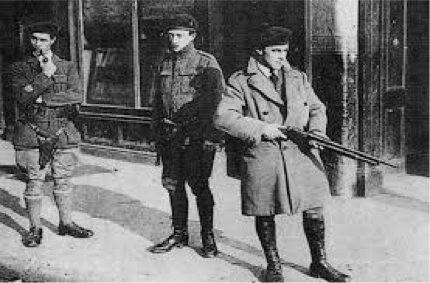
The Smyth incident was reported around the world and later in the year it formed an important part of an American inquiry into British rule of Ireland.
Two former constables told the American Commission how they saved a Sinn Feiner from death in Clogheen, county Tipperary. Clogheen was a small station, with a sergeant, five Irish constables, and three British constables. Not long before he resigned, Daniel Galvin was part of a night patrol consisting of three Peelers and a pair of Black and Tans by the name of Gillette and Richards. Later, in front of the commission, Galvin testified that Richards wanted to be shown to the house of a prominent local republican, Maurice Walsh. "We wanted to know what he wanted with Walsh," said Galvin: "he said he was going to shoot him."
And we refused to show him where Walsh lived. And he turned around to us and demanded that we do our duty and show him the place. And we reminded him that he was not in the army now; that he was on a police force. And he said that when he left the training depot he was told that he would not be subjected to any discipline whatever if he shot any Sinn Feiners. He went about ten yards down the road and turned and said he would shoot me if I didn't show him where Walsh lived. Then we turned back to the barracks. We had not gone far when Richards fired at us. When I got back to the barracks with the men, I reported him to the sergeant, and he said he had committed a felony by threatening the lives of three men.
THE BLACK AND TANS: BRITISH POLICE IN THE FIRST IRISH WAR, 1920-21 By DAVID LEESON, B.A., M.A.
Mixed messages were being given. On the one hand was traditional army discipline and playing by the rules and yet the ‘Black and Tans’ who were recruited to help the police force, were being given ‘shoot to kill’ ‘no questions asked’ instructions. Along with this were the imprisonments and executions without proper trials. There was no clear leadership from Parliament and too much dithering from government ministers.
CHTL was one soldier who was very tired of all the dithering. He liked clear, straight forward orders. If they weren’t at war in Ireland then he would behave as he did in occupied Germany and relax in his time off.
